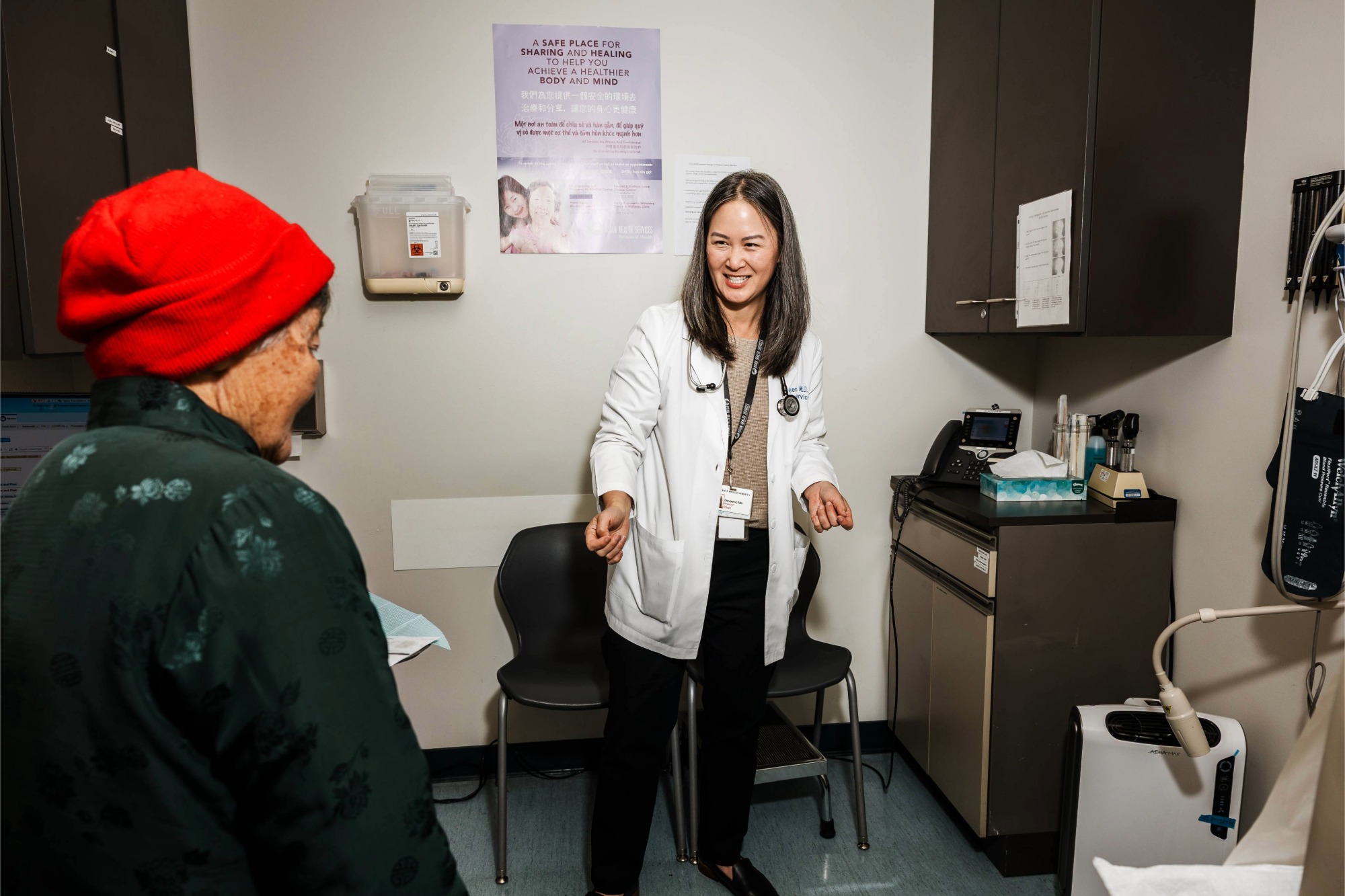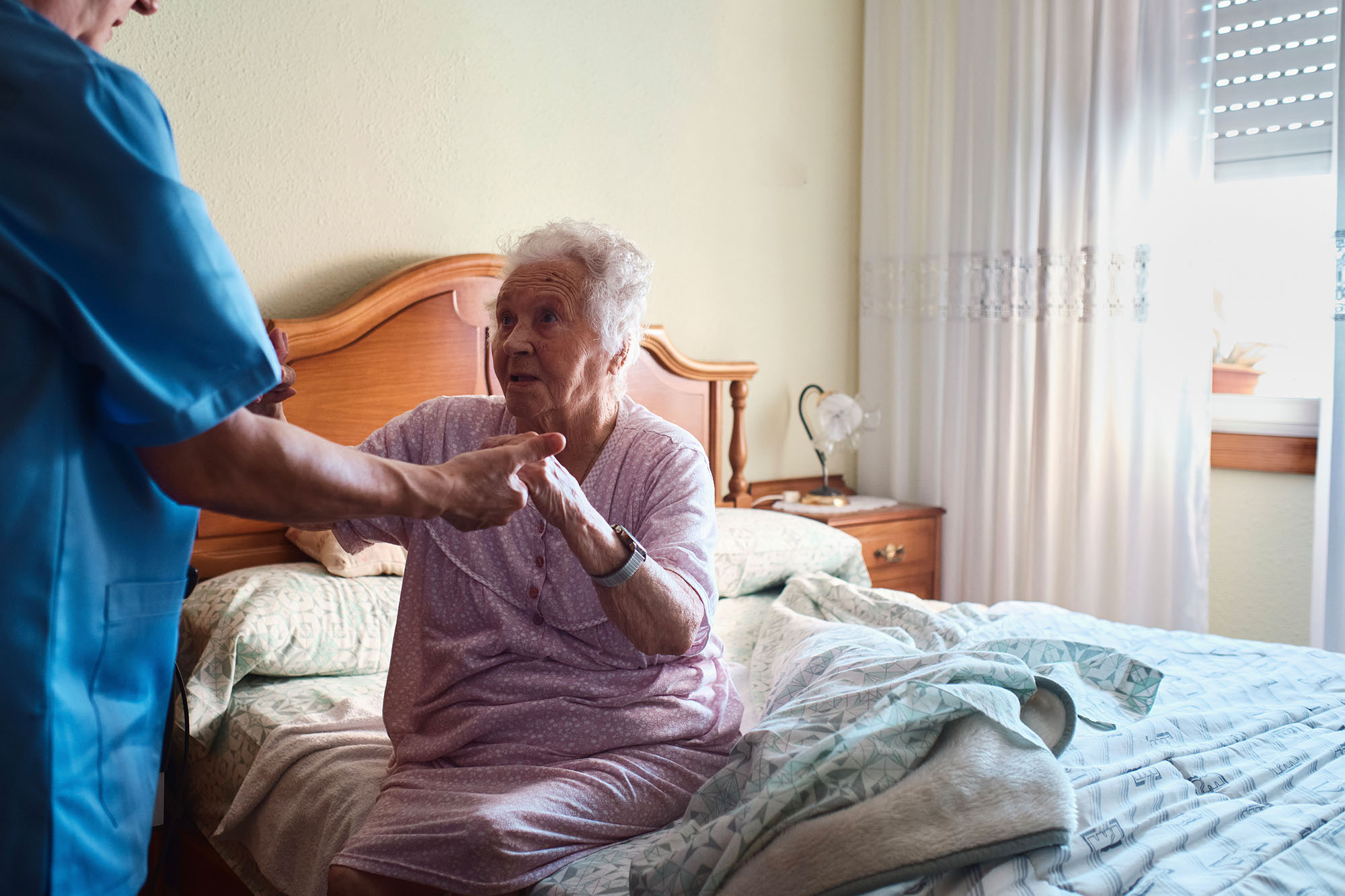As inpatient, outpatient, and home-based palliative care expanded within the safety net and beyond, California’s palliative care leaders saw the opportunity and increasing need to assess the quality of palliative care programs. Thanks to the work already happening in the state and across the nation, California had access to palliative care consensus guidelines and standards, measures to support assessments, benchmarking and quality improvement initiatives, and certification and accreditation options for provider organizations.
Consensus Guidelines and Standards
The essential elements of quality palliative care have been identified, maintained, and updated through the National Coalition for Hospice and Palliative Care’s Clinical Practice Guidelines for Quality Palliative Care (National Consensus Project [NCP] Guidelines). Now in its fourth edition, the NCP Guidelines describe gold-standard palliative care and offer suggestions for incorporating best practices into care delivery in a range of settings and for multiple populations. Over the years, the NCP Guidelines have served as a touchstone for health systems and providers when designing new specialty and generalist palliative care programs. They also informed the development of the California Advanced Illness Collaborative Standards, which sought to translate the recommendations in the NCP Guidelines into specific requirements that could inform contracting for community-based palliative care services.
Measures
Multiple national efforts have sought to identify and test measures that can assess quality of care delivered by palliative services across settings. In 2012 the National Quality Forum, at the request of the federal Department of Health and Human Services, endorsed 14 measures suitable for accountability and quality improvement for palliative and end-of-life care. In 2014, the American Academy of Hospice and Palliative Medicine and the Hospice and Palliative Nurses Association, through the Measuring What Matters project, endorsed a top-10 list of valid, clinically relevant measures for assessing care quality in hospice or palliative care, appropriate for any patient population and care setting.
As the field evolved and more care was being delivered in outpatient and home settings, new measures were developed and distributed. The Palliative Care Quality Measures Project, led by the American Academy of Hospice and Palliative Medicine in collaboration with the RAND Corporation and the National Coalition for Hospice and Palliative Care, developed and tested two patient-reported outcome performance measures that evaluate quality of care. The measures, which assess how much patients felt heard and understood and if patients got the help they wanted with pain, were designed for outpatient settings and were endorsed by the National Quality Forum in 2021. In 2021 RAND released its Serious Illness Survey for Home-Based Programs, a validated tool for assessing the experiences of patients in communication, help with symptoms, and care coordination, among others.
Today, the field has access to validated tools for assessing patient and family experience of care and other key processes and outcomes across inpatient, outpatient, and home settings. The Center to Advance Palliative Care has compiled measure sets, which include many of the measures described above, as well as an array of technical assistance materials to assist provider, health system, and payer organizations in selecting measures.
Although having valid measures has been a tremendous boon to understanding and improving quality, developing structures and processes that support and encourage their use, and reducing variation in what is measured across organizations, remain significant challenges for the field.
Data and Quality Improvement
The Palliative Care Quality Network (PCQN), started by UCSF, played a pivotal role in elevating the significance of data collection and quality improvement in California and beyond. PCQN operated a national quality improvement database, which stored and analyzed information about patient characteristics, care processes, and treatment outcomes from specialty palliative care teams in hospitals and various community settings across California and other states. PCQN also functioned as a quality improvement collaborative, letting members track their own performance, compare outcomes with other member programs, and identify and share best practices in core areas such as pain management, advance care planning, and screening for spiritual care needs. In 2019, PCQN was folded into a new national entity, the Palliative Care Quality Collaborative (PCQC). According to PCQC administrators, 257 California-based organizations belong to PCQC, providing benchmarking for palliative care in multiple settings: inpatient, clinic, and home.
In another national effort, the National Hospice and Palliative Care Organization (NHPCO) Quality Connections Program supports and recognizes members’ efforts to improve care quality. Participants must achieve milestones within defined time frames by focusing on four pillars: education, application of education, performance measurement, and innovation. Success in the program is measured quarterly, based on activities completed in each pillar. Quarterly, NHPCO publishes a national Achievement Map and celebrates participating organizations’ progress throughout NHPCO publications, including press releases and social media.
Organizational Certification/Accreditation
Since 2016, national credentialing organizations such as The Joint Commission and Community Health Accreditation Partner have developed palliative care credentials and standards for services operating in inpatient or community settings. Currently, 79 California organizations are certified in home-based palliative care by The Joint Commission or Community Health Accreditation Partner, and six California hospitals have palliative care certification for inpatient services from The Joint Commission.
Resources from the Field
- Clinical Practice Guidelines for Quality Palliative Care, 4th Ed. (National Coalition for Hospice and Palliative Care)
- Palliative Care Quality Measures Project (National Coalition for Hospice and Palliative Care)
- RAND Serious Illness Survey (RAND Corporation)
- Palliative Care Quality Collaborative
- Defining and Measuring Quality (Center to Advance Palliative Care)
For full source information, see California’s Palliative Care Evolution — Drivers of Progress in Advancing Palliative Care (PDF).






